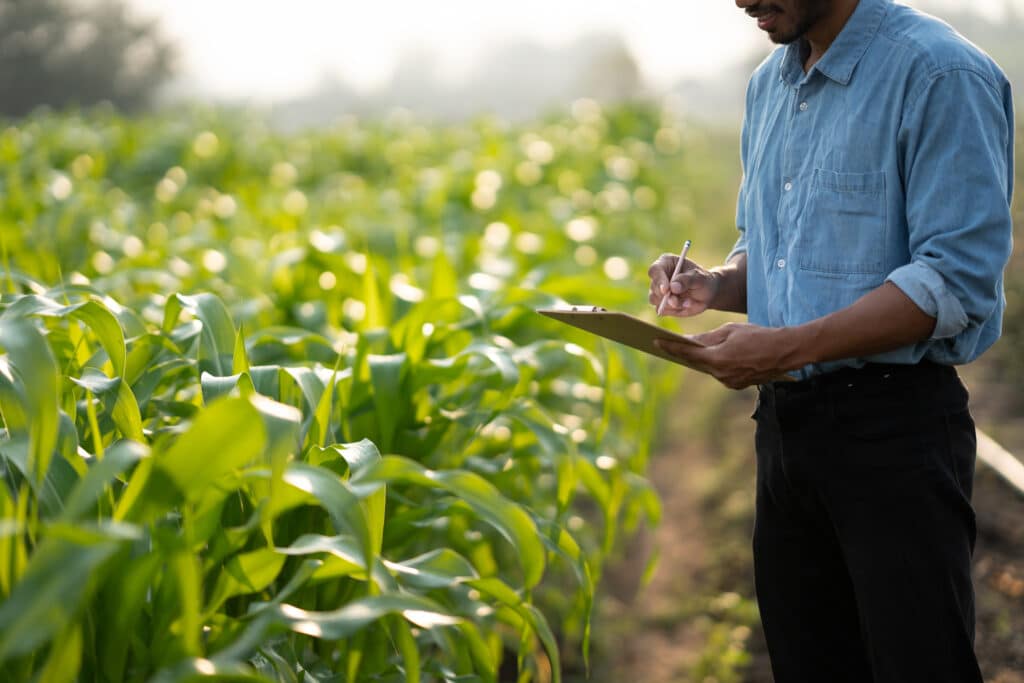Africa is on the path to self-sufficiency. While the road ahead is uncertain, some steps would contribute to addressing food security issues by improving food production and distribution in Africa.
The whole world is facing food security issues, with trends pointing to a global need for change. The global population is expected to rise over 10 billion people by 2050, and the African continent is set to become home to 25% of the world’s population, compared with 15% today.
Along with a growing population, Africa also faces issues with sustainability within current methods of farming and underuse of available arable land.
Combine this with the global challenges of increased demand on food, energy and water, and we can clearly see what agricultural self-sufficiency in the region would mean. There are opportunities which can help to realise this:
Plenty of arable lands
An under-utilised agri-labour workforce
Untapped water resources
Work to improve the situation to date
As with any significant requirement for change, there are barriers to overcome.
To feed the growing populous, yields will have to increase, and for this to happen, efficiencies will need to be found.
New technologies will aid in this, as will infrastructure improvements to overcome any supply chain issues, and education to counteract any barriers to change.
Agricultural biotechnology to improve food output is an area of particular promise and is already showing results. Scientists at Nigeria’s Institute for Agricultural Research at Ahmadu Bello University to deal with the impact of pest, Maruca vitrata, on black-eyed pea production.
Africa grows about 96 per cent of the approximately 5.4 million tonnes of black-eyed peas consumed worldwide annually. In Nigeria, Maruca vitrata destroys circa US$300 million of the crop each year, forcing farmers to import US$500 million worth of pesticide.
The scientists at Ahmadu Bello University are developing a transgenic black-eyed pea variety using insecticide genes from the Bacillus thuringiensis bacterium.
As well as technological enhancements, there is a human element to address. Namely, food loss and waste within the value chain and bureaucratic problems in the form of trade barriers.
Food loss and waste
30-35% of all food produced for human consumption is lost or wasted every year. If we were able to save just half of that, we would be able to feed an additional 1.7 billion people. Most food loss in Africa takes place in the primary production and distribution stages.
Appropriate investment in infrastructure, transportation, packaging facilities and agro-processing can help in the fight against food loss in the developing world.
Key issues identified by the FAO is a scarcity of silos and variable power supply, highlighting the need for targeted investments along with technological knowledge transfer.
Bureaucracy creating barriers
The African agri-sector faces more trade barriers in getting their food to market than anywhere else in the world. African leaders will have to implement measures to facilitate free movement of food between countries, from fertile areas to those where communities are suffering food shortages.
Improved food trade can also facilitate the better management of the destructive effect of increasing droughts, rising food prices and volatile weather patterns.
The global agricultural landscape is in a state of flux, and adapting to this change will be of great service to Africa’s food security goals. There is a global demand for more food, and Africa is expected to import the majority of commodities by 2023 is nothing is done to lower net imports.
Africa has much ground to catch up in terms of crop yields. Crops such as cassava, yam and potatoes are vital for food security. Crop yields must be elevated across all types of crops for sustainable farming which in turn will lessen trade deficits, boost food self-sufficiency, and finally feed the world.
Conditions for success will be widespread adoption of new technologies, which will mean deregulations, a sustained focus on education of new technologies, and improvements in agricultural innovation systems.
In the full report, we go into further detail from our research and analyse how Africa can realise a food security future.
Food supply chain trends: Discover more
The journey toward food security in Africa will require collaborative innovation and significant advancements in overall efficiency. Improving overall production and reducing food loss & waste has been identified as crucial strategies to achieve this, and efforts from both businesses and governments are well under way in this area.
At Farrelly Mitchell, we support ambitious governments, multilaterals, corporates and investors seeking to establish more productive and resilient food systems in Africa. With our extensive understanding of sustainability and esg, supply chain optimisation, food security, and capacity building, we are perfectly placed to support African agri-development. To leverage our expertise and empower African agriculture, get in touch with Farrelly Mitchell.














